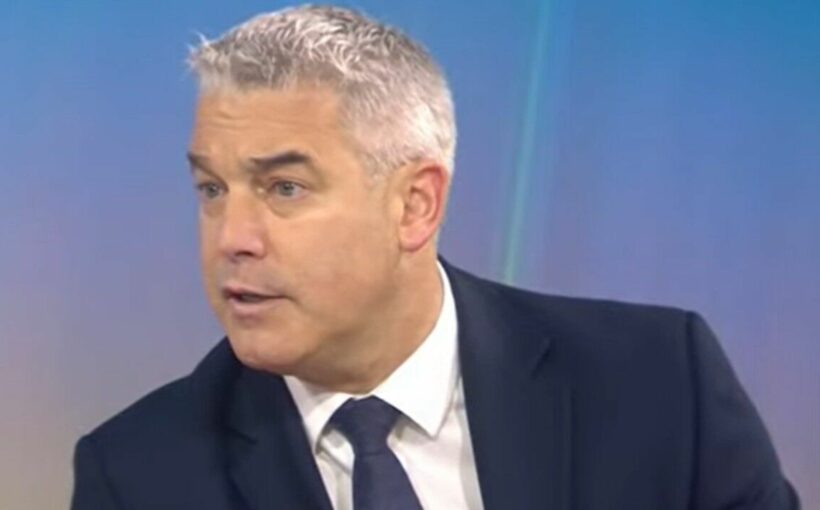Health secretary on impact of ambulance strikes amid pay dispute
We use your sign-up to provide content in ways you’ve consented to and to improve our understanding of you. This may include adverts from us and 3rd parties based on our understanding. You can unsubscribe at any time. More info
People with non-life-threatening emergencies who are made to wait more than six hours for an ambulance during strikes could be put at risk of dying, Steve Barclay has suggested. The Health Secretary also said discussions are due to take place tomorrow with trade unions over what callouts would be covered when paramedics walk out on December 21 in a row over pay.
Mr Barclay was asked during an appearance on Times Radio this morning about emergencies becoming life-threatening if people are left waiting for more than six hours for an ambulance.
He said: “I share the concern and that is basically why I don’t want these strikes to happen and I stand ready to continue talks with the trade unions, my door is open.
“I am very keen that we continue that dialogue because the risk you identify is the key one.
“We have got further talks with officials tomorrow on what are called the derogations, which bits of the service that they will offer.
“They have said that they will continue to offer life-threatening service so that is the category ones.

“There is a question in terms of whether they will cover all the category twos, those are the emergency responses to things like heart attacks and strokes so hugely important that those are also covered.
“But as you say, what are referred to as the category threes and the category fours which are not the life-threatening or the emergency responses but still very important clearly if those are not covered because of the strikes then that places huge pressure.
“And of course we can look at what contingency plans we can put in place but they are never going to cover the same amount as having 3,000 ambulances on the day which is roughly what we have on a typical day.”
Mr Barclay was pressed on Sky News over whether elderly people who have falls would get an ambulance during the strikes.
Host Kay Burley asked: “If an old person has fall is that a priority?”
Mr Barclay replied: “In terms of what will be covered by the strikes, we’re discussing that with the trade unions.
“They have said that they will cover life-threatening conditions, so that tends to be less those sort of cases, they’re usually called a category three.
“There’s four categories of call. Life-threatening which is category one, emergency which is category two, those tend to be things like heart attacks and strokes.
“So your case Kay would often be classed as a category three or four. At the moment the trade unions are saying those things wouldn’t be covered.”
Pressed on whether ambulance services would cover other callouts, the Health Secretary added: “We’re having those discussions.
“What the trade unions said to us was they didn’t want to get into the details of exactly what things would be covered and what would not until they announce the date of the strike.
“Now they’ve done that there are discussions that will take place tomorrow in terms of what exactly will be covered. “
It comes after it was announced yesterday that thousands of ambulance workers and other NHS staff will strike on December 21 in a row over pay.
The GMB, Unison and Unite are co-ordinating industrial action across England and Wales after accusing the Government of ignoring pleas for a decent wage rise.
The strike will happen a day after members of the Royal College of Nursing stage their second walkout, also over pay.
The GMB said more than 10,000 ambulance workers across nine trusts in England and Wales will strike.
Paramedics, Emergency Care Assistants, call handlers and other staff will also walk out on December 28.
Source: Read Full Article
